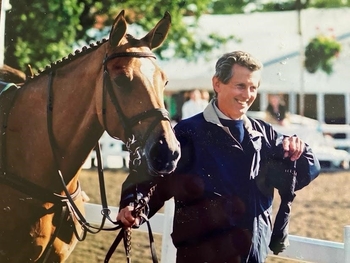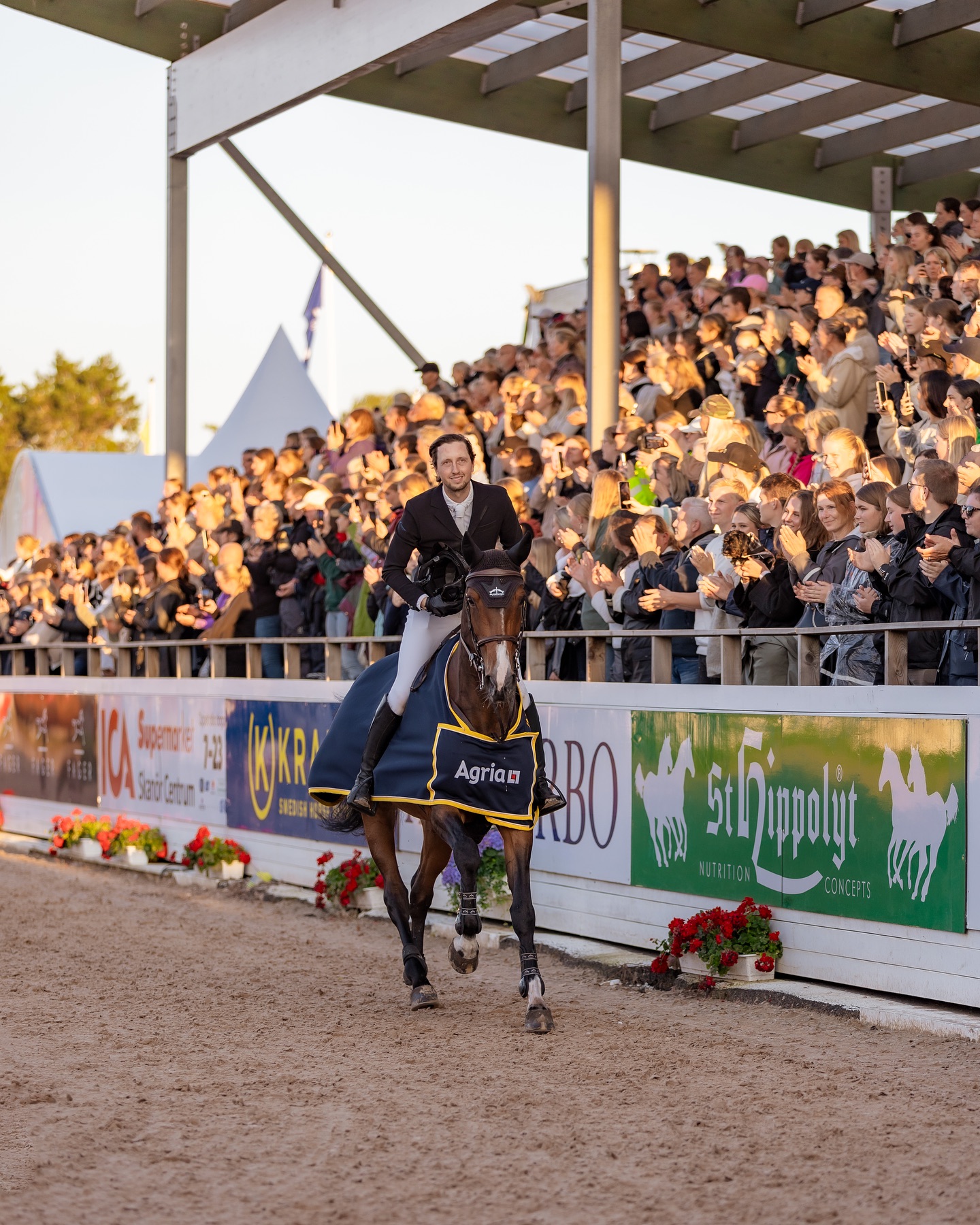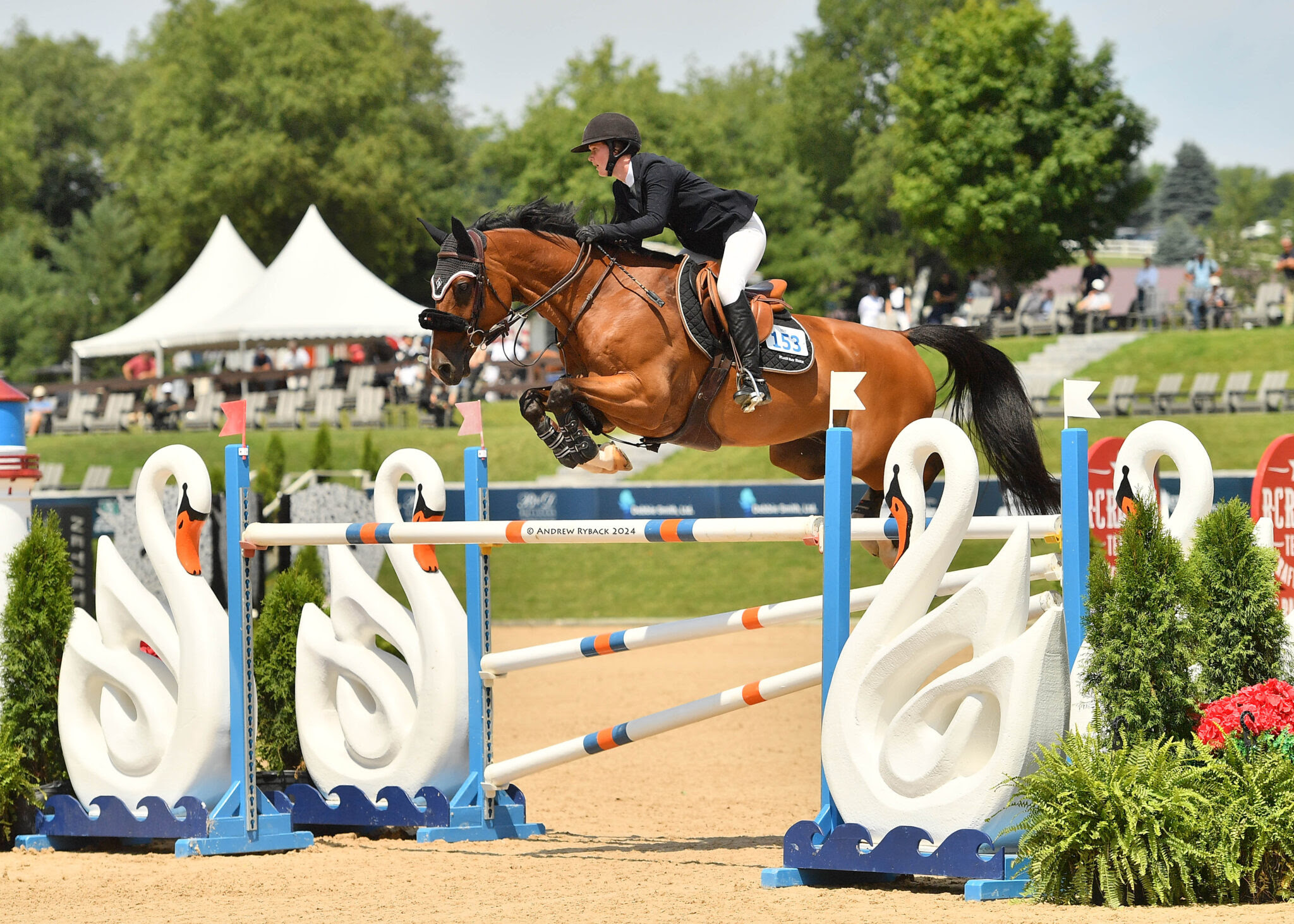Dietmar Ackermann, one of England’s most influential horsemen, passed away peacefully at his home Spring farm, Rutland on Monday 13th November aged 83.
He was born in Haynau, Silesia, Germany on 14th January 1940. Dietmar’s affection for horses was apparent at an early age. The family owned a brewery and during the bombing of his hometown, he was found by his mother taking refuge in a stable with one of the brewery’s draft horses. As a child, he travelled alone by train across East Germany to spend the summer holidays with his uncle and it was there that he learned to ride, bareback, on the farm horses.
As a teenager he trained at a state stud in Graditz near Torgau in Saxony. He later enrolled at university to study veterinary science but did not complete his studies, deciding instead to escape from East to West Berlin. He then moved on to West Germany, where he met his first wife, Sue, and started his family, and after a spell in Belgium, he arrived in England in 1960, all the while earning his living training horses at various establishments. England was his home for the next 63 years, until the end of his life, and he was very proud when, in early 2023, he became a British citizen.
He established his first equestrian centre, High Fen, near Bures in Suffolk. Dietmar was a natural rider and produced numerous high class young horses for both showjumping and eventing. The way he worked the horses properly through was an art. Sitting on horses following Dietmar’s training was a major learning experience for riders. They could feel what they needed to achieve whilst learning themselves. The forward responsiveness, suppleness, balance and good mouths he achieved on many horses was his trademark. This was a true gift that attracted owners and many pupils to High Fen, which soon became a well-established international training centre welcoming pupils from around the world. It was an amazing achievement for a young man in his twenties.
In around 1970 he moved with his family to Heybridge in Essex and rode for Wickham Bishops-based Cecil Williams. A few years later he was invited by Cecil to join him at North Luffenham Hall in a partnership producing international showjumpers. One horse that springs to mind is Beau Supreme, which at seven years old in 1972 recorded a world record price when sold to the Netherlands.
Dietmar subsequently moved to Uppingham, and at the yard he established in partnership with Jack Mapleson at nearby Harringworth, he produced a string of horses with which Sally Mapleson achieved success.
In 1976, Dietmar found the ideal land in Rutland to make his family home and to develop his business. He bought eleven acres, with planning permission, from Robin Leyland. Very soon an American style indoor school with stabling was built, followed by a bungalow. Over the years, starting even before the bungalow was constructed, he planted many trees, shrubs and bulbs. He had a love of nature that can be traced back to the time he spent as a child on his uncle’s farm near Walchow in Brandenburg, as well as time spent accompanying a forester, a family friend, at work.
Dietmar gradually increased the Spring Farm acreage and the place flourished into an establishment that educated and launched many young people into prominent areas of the horse world: Lloyds Bank Young Instructor of the Year, Leading Show Jumper of the Year, judges, and head grooms that are supporting many professional riders today.
Dietmar produced horses over many decades. Event and showjumping horses were exported to compete in Olympic Games and various championships around the world with the original clients coming back to Dietmar time and time again. He enjoyed the support of friends, family, and investors as he found promising horses.
In 1989, Dietmar’s future wife Di Lampard joined him at Spring Farm.
“My career took off. We delighted in the arrival of our son Henry and married. He made my dreams come true in more ways than one. I couldn’t have achieved all that I have without his love and backing,” said Di.
Dietmar loved to welcome all of his family at Spring Farm, including his older children, his grandchildren, great grandchildren, and many relatives from Germany. Over the years, there were many, many other visitors to Spring Farm. He was a generous and welcoming host to all and took great pride in showing them around the property and telling them about the latest developments.
Dietmar is survived by his wife Di, daughter Katrin, sons Roderick and Henry, six grandchildren and four great grandchildren.
source: British Showjumping



